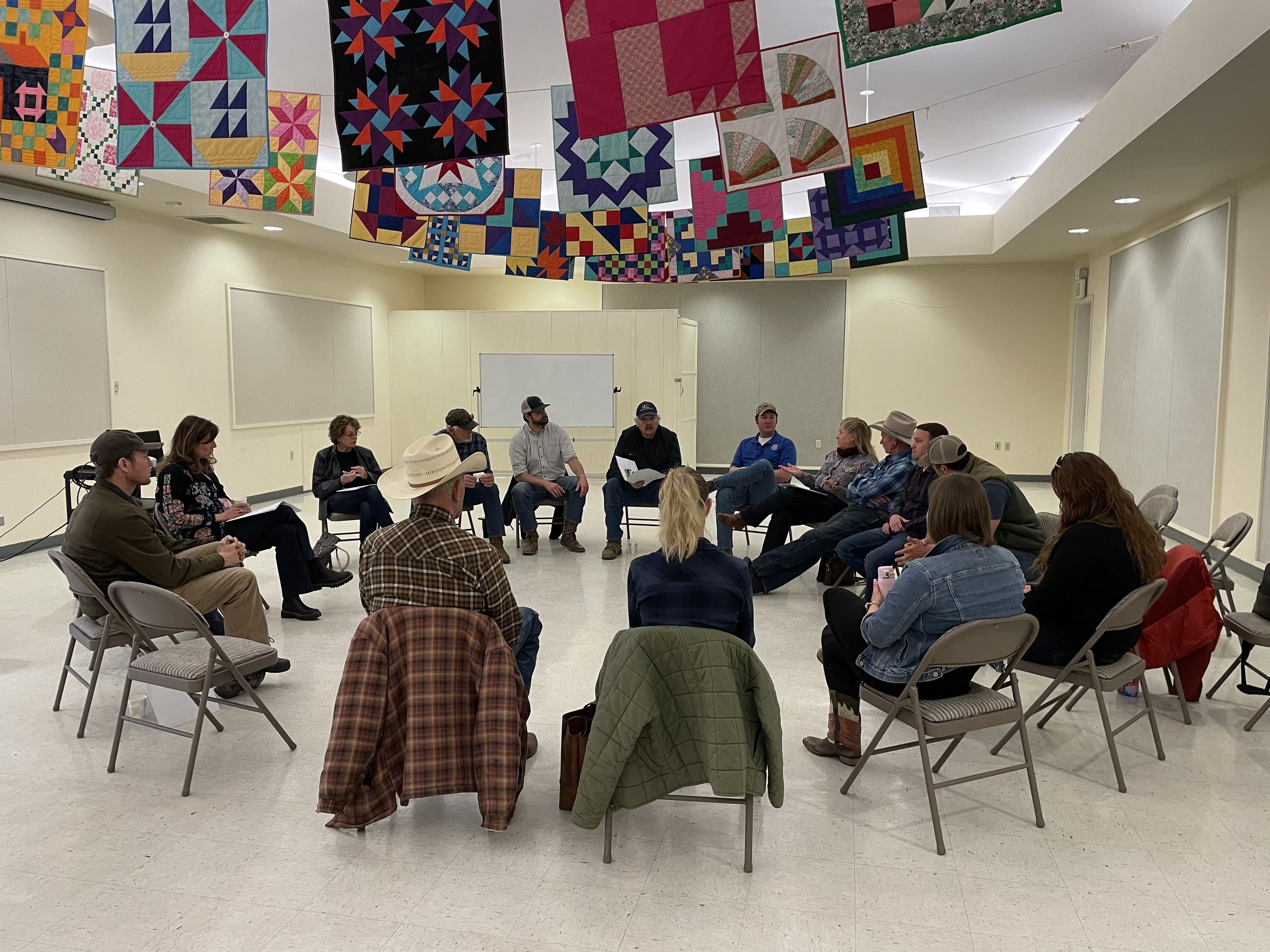On the Road in Oregon: Community Engagement with a Side of BBQ Sauce
This continues "On the Road in Oregon," an exciting new blog series that takes you on a journey through the heart of Oregon's diverse communities. In this series, we'll explore the work of the Oregon Department of Energy's new Community Navigator Program as its staff fosters connections and collaboration across the state. Join us as we uncover the stories, challenges, and triumphs of communities across Oregon, showcasing the power of community engagement and sustainable initiatives. This story comes from the perspective of Alice Weston, a RARE Member serving as a liaison between ODOE and Central/South Oregon.
As I began my new role as the Rural Energy Coordinator for Central and South-Central Oregon this fall, I found it challenging to know where to start. Fortunately, in my first week, I received an invitation to Sustainable Northwest's Upper Klamath Basin Listening Session. The invitation included a big picture of a BBQ lunch, which made me even more excited to attend.
Sustainable Northwest is a statewide nonprofit championing natural resource stewardship while centering local Oregonian economies and the ecological health of our ranches, farms, and forests. Kelley Delpit is the Klamath Program Manager with Sustainable Northwest, and has been hosting the Upper Klamath Basin Listening Sessions for a few years. Kelly is a second-generation cattle rancher in the basin and describes her role as a “matchmaker,” connecting landowners with the resources needed to make energy and water efficiency upgrades. Kelly facilitates these meetings in collaboration with local agricultural producers and business owners, as well as public service organizations that have programs and services that support agricultural communities. Kelly does an excellent job of bringing everyone together and leading the conversation — and also truly listening to the producers in her community.
Initially, Kelly organized the meetings as a place where resource providers like the Lake County Resource Initiative or the Department of Fish and Wildlife could come and explain their programs and supportive offerings to an audience of agricultural producers. However, during one early meeting, a producer asked if they could instead start by sharing their problems and then receive feedback from the public service providers present. This reversed model worked well and provided a better setting for really listening and learning for the organizations present. Kelly has since changed the format of all future meetings to listening sessions where producers can tell us, the public service providers, about their challenges and future plans, and then those present discuss what support and solutions might be helpful for the producer’s particular projects. Often this model has supported not just solutions-based discussions but also conversations around program and service adaptation and feedback that is incredibly helpful for those of us creating, maintaining, and implementing public services.
In my first blog post, I mentioned that Central Oregonians are living experts on their communities’ energy needs and concerns, and their voices will help shape the energy ecosystem of Oregon’s future. These listening sessions are a perfect example of that. They create an environment of collective support that is vital to good community engagement and public service work. They provide a space where producers can give feedback about the programs meant to serve them. In turn, the meetings ultimately give service providers an invaluable space to learn about how their programs and services are or are not being used by communities. We can ask questions to better understand why they might be hesitant to participate in a program or might not be interested in a program at all. We can hear what other organizations are doing to better serve the community and we can learn from our own and others' past mistakes and successes. By attending these meetings, I have been able to learn from all of the attendees and bring information back to ODOE’s Oregon Rural and Agricultural Energy Assistance (ORAEA) program team and Strategic Engagement team. I am also excited to share that ODOE has been invited to present on our programs offerings in an upcoming listening session. I look forward to highlighting the great work the ORAEA team is doing with their assessments in the rural and agricultural space. This opportunity to share about our work while learning and listening is a great example of how valuable these meetings can be for all involved.
Upper Klamath Basin Listening Session’s model allows both parties, the community members and the public service providers, to have real conversations without the barrier of screens and phone calls. It allows us to workshop ideas together in real-time. We get to sit together and enjoy a meal and begin to learn more about each other. It is a space to share information and knowledge in order to make better collectively informed decisions around Oregon’s energy future. In the end, that learning, support, and building of trust are the best ways to create real and lasting community energy resilience.


